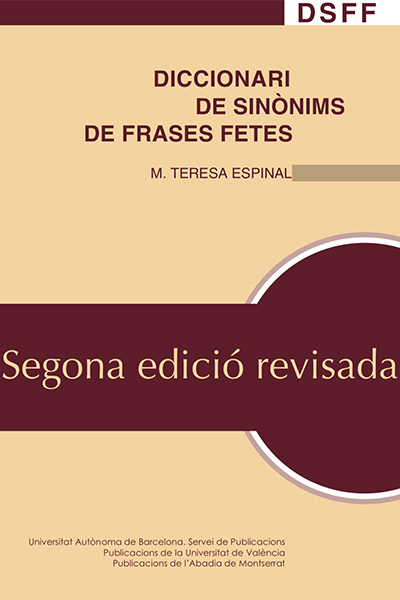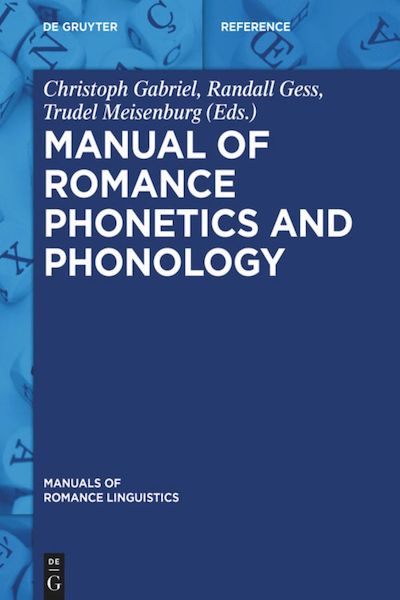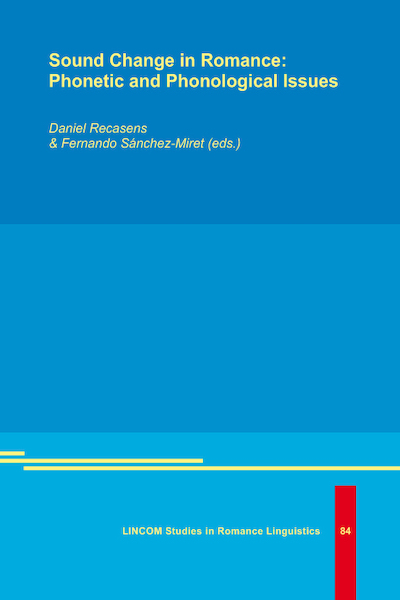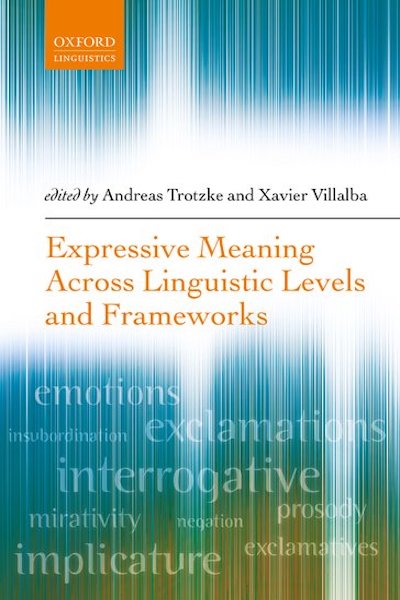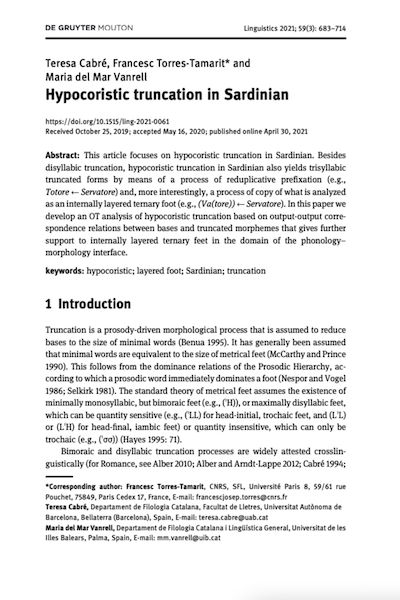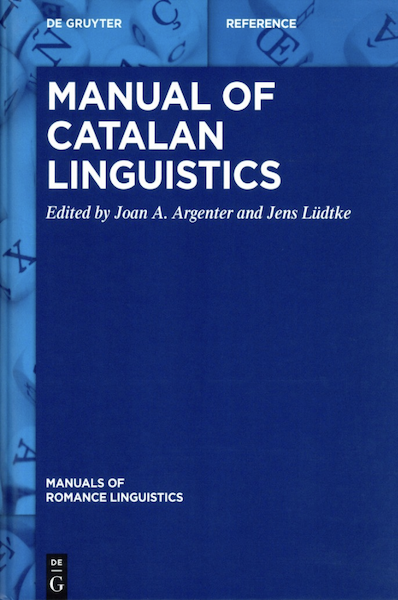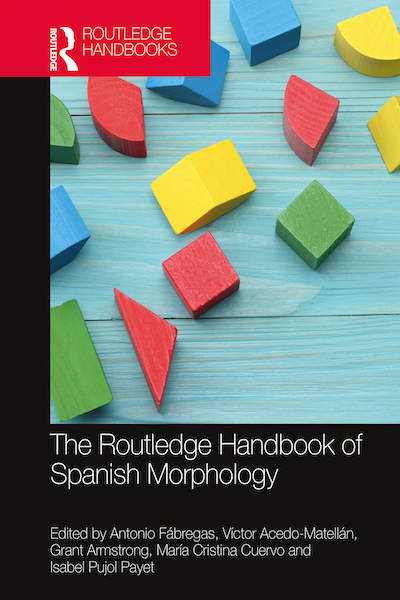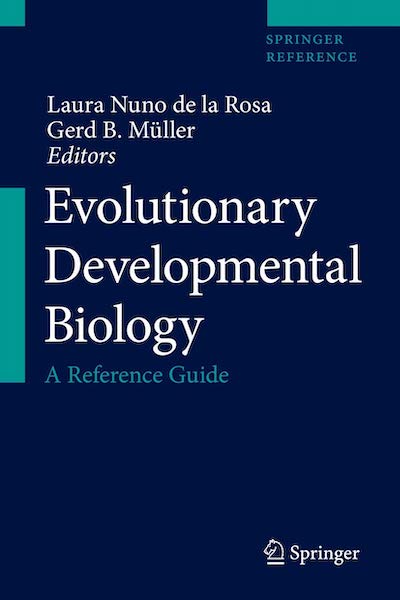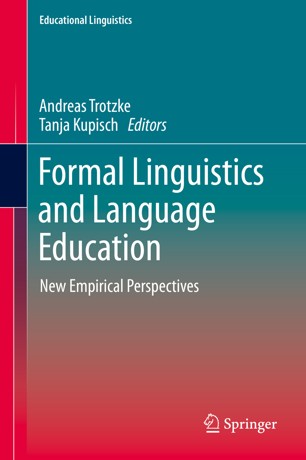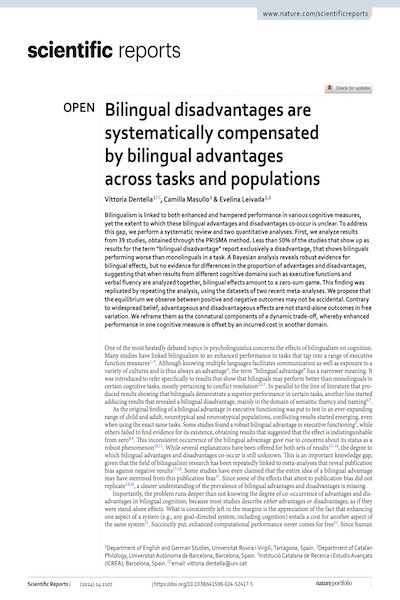
Autors:
Vittoria Dentella, Camilla Masullo & Evelina LeivadaTítol:
Bilingual disadvantages are systematically compensated by bilingual advantages across tasks and populationsEditorial: Scientific Reports (Springer Nature)
Data de publicació: 24 de gener del 2024
Text complet
Bilingualism is linked to both enhanced and hampered performance in various cognitive measures, yet the extent to which these bilingual advantages and disadvantages co-occur is unclear. To address this gap, we perform a systematic review and two quantitative analyses. First, we analyze results from 39 studies, obtained through the PRISMA method. Less than 50% of the studies that show up as results for the term “bilingual disadvantage” report exclusively a disadvantage, that shows bilinguals performing worse than monolinguals in a task. A Bayesian analysis reveals robust evidence for bilingual effects, but no evidence for differences in the proportion of advantages and disadvantages, suggesting that when results from different cognitive domains such as executive functions and verbal fluency are analyzed together, bilingual effects amount to a zero-sum game. This finding was replicated by repeating the analysis, using the datasets of two recent meta-analyses. We propose that the equilibrium we observe between positive and negative outcomes may not be accidental. Contrary to widespread belief, advantageous and disadvantageous effects are not stand-alone outcomes in free variation. We reframe them as the connatural components of a dynamic trade-off, whereby enhanced performance in one cognitive measure is offset by an incurred cost in another domain.

